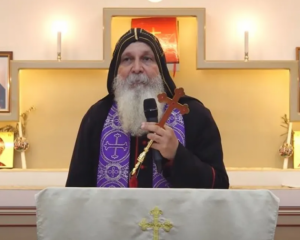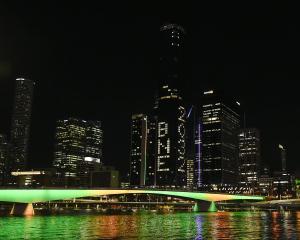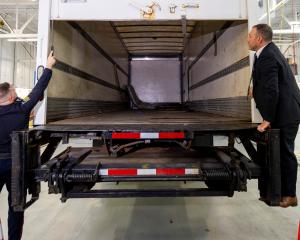
Industrial action in the oil sector was also waning. Oil group Total SA said three of its five refineries in France were being prepared for restart after days at a standstill.
Economy Minister Emmanuel Macron was splattered on the head when militants of the hardline CGT trade union cornered him in the Paris suburb of Montreuil, where he was launching a stamp to commemorate the 80th anniversary of the "Popular Front" government that gave French workers new rights.
Macron, who advocates economic reforms to loosen rigid labour market rules and promote flexibility and competition, has become a bogeyman for traditional leftists.
"It's par for the course but it won't have any impact on my determination," Macron told reporters after the attack, saying there was no economic future for those who resisted change.
Participation in action against the labour reform is dwindling with just 8.5 percent of rail workers still on strike, the SNCF state railway said before crucial negotiations between management and unions over a reorganisation of working time.
Rail connections remained seriously disrupted, however, as the company worked to secure a truce before the Euro 2016 soccer tournament kicks off in France on Friday. About 60 percent of high-speed TGV and regional trains but only one-third of slower inter-city services were running.
Socialist President Francois Hollande, piling pressure on the CGT, said on Sunday it would be incomprehensible if rail and airline strikes prevented fans from travelling to matches during the month-long championship.
The strike is costing the rail company close to 20 million euros ($22.70 million) a day in ticket exchanges, reimbursements and lost freight business, an SNCF source said.
'BACK AGAINST THE WALL'
Negotiators worked to clinch a deal by an end of Monday deadline after the government intervened last week pledging to safeguard rest periods and help the SNCF with its debt of 50 billion euros before passenger services open to private competition in 2020.
Their task is complicated by the fact that the communist-founded CGT union, along with smaller labour unions such as Force Ouvriere, is also on the warpath over the labour reform that would make hiring and firing easier and give precedence to deals on pay and conditions negotiated at company level.
Force Ouvriere union leader Jean-Claude Mailly showed no sign of being ready to call off the industrial action.
"We're not stupid. Nobody's saying 'we're going to block the Euros' ... but when your back is against the wall, there's little alternative but to continue," Mailly told LCI TV.
A BVA poll published at the weekend showed that 54 percent of French people interviewed were against the protests.
The government averted a separate strike by air traffic controllers. However, pilots at Air France have given notice of plans to strike for several days from June 11 over management plans to curb their salaries. Management and unions at the flag carrier were due to hold a new round of talks on Monday.












